#Versailles no bara
Explore tagged Tumblr posts
Text

Lady Oscar but she is from Cainhurst
#rose of versailles#the rose of versailles#rov#berubara#versailles no bara#lady oscar#oscar françois de jarjayes#bloodborne#cainhurst#vilebloods#my art
636 notes
·
View notes
Text
This is what RGU looks like according to my boyfriend

#revolutionary girl utena#shoujo kakumei utena#gundam#mobile suit gundam#anthy himemiya#rose of versailles#versailles no bara#lady oscar#lalah sune
29 notes
·
View notes
Text


Rose of Versailles (1979) // Revolutionary Girl Utena (1997)
#lady oscar#versailles no bara#rose of versailles#anthy himemiya#revolutionary girl utena#shoujo#rgu#rguedit#oscar françois de jarjayes#my oscar#my anthy
541 notes
·
View notes
Text

#ベルサイユのばら#rose of versailles#versailles no bara#berusaiyu no bara#lady oscar#the rose of versailles#anime#anime gif#gif#anime aesthetic#aesthetic#retro#retrowave#retro anime#retro style#retro aesthetic#70s#70s anime#70s aesthetic#green#green aesthetic#sparkly#glitter#multicolor#cute#kawaii#animecore#kawaii aesthetic#cute aesthetic#kawaiicore
900 notes
·
View notes
Text

#rose of versailles#versailles no bara#lady oscar#shoujoedit#oldanimeedit#fyanimegifs#animangaladies#animangahive#oscar françois de jarjayes#80s anime#70s anime#retro anime#classic anime#vintage anime#anime gif#anime#shoujo#shoujo anime#merygifs
851 notes
·
View notes
Photo

queen of swords
#rose of versailles#Oscar François de Jarjayes#lady oscar#oscar#berubara#versailles no bara#watercolour art#watercolor#Watercolour Illustration#watercolour#my art#Riyoko Ikeda#18th century
5K notes
·
View notes
Text

New key visual for "The Rose of Versailles" anime movie by MAPPA releasing Spring 2025
#Rose of Versailles#Versailles no Bara#Oscar François de Jarjeyes#Marie Antoinette#André Grandier#Hans Axel Von Fersen
974 notes
·
View notes
Text

455 notes
·
View notes
Text

Rose of Versailles (1972) by Riyoko Ikeda
997 notes
·
View notes
Text






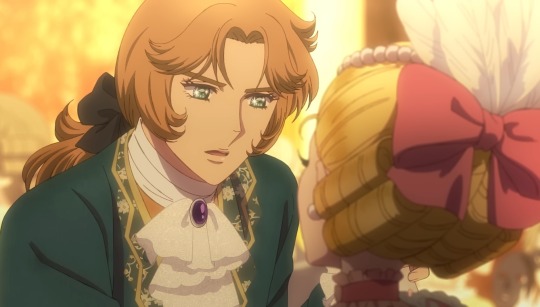

Pride month may be over but gay people win once again, the Lady Oscar movie is real and hasn't been cancelled🌹🌹 here are some screenshots from the trailer ❤️🤍
#thank you for creating lesbianism oscar 🙏🏻you will always be famous#lady oscar#versailles no bara#the rose of versailles#berubara#oscar françois de jarjayes#marie antoinette#how do i tag fersen it's weird enough with marie antoinette#not tagging him. there#forgive the person i will become when this comes out#rov#rose of versailles
523 notes
·
View notes
Text
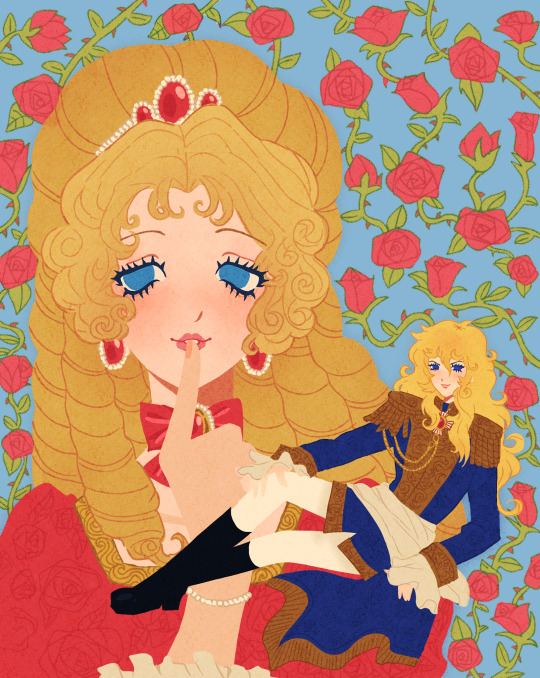
#rose of versailles#jade draws#lady oscar#marie antoinette#versailles no bara#riyoko ikeda#the rose of versailles#oscar françois de jarjayes
2K notes
·
View notes
Text

Old Rose of Versailles sketch page
#ベルサイユのばら#the rose of versailles#rose of versailles#berubara#versailles no bara#lady oscar#oscar françois de jarjayes#andre grandier#oscar x andre#marie antoinette#my art
577 notes
·
View notes
Text




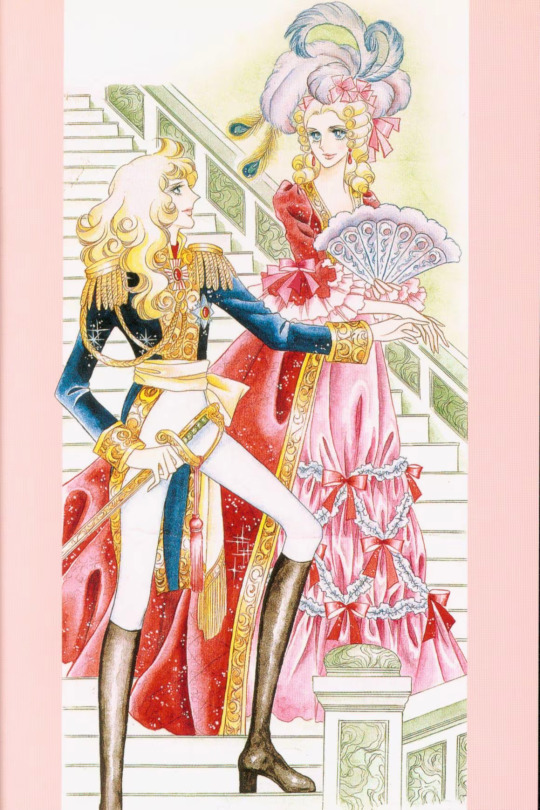

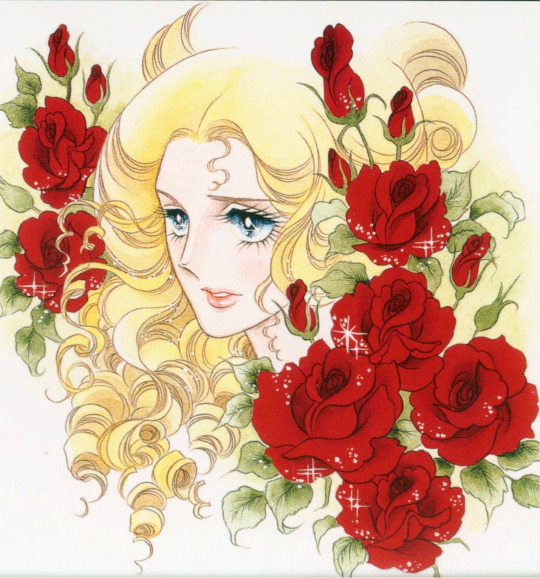
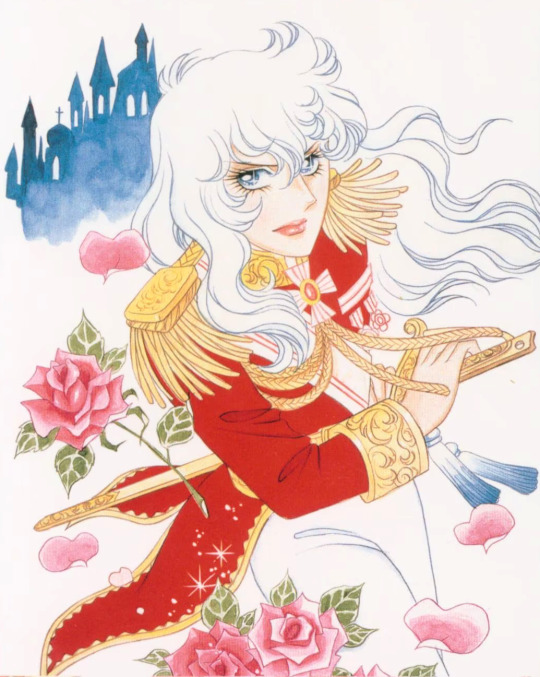
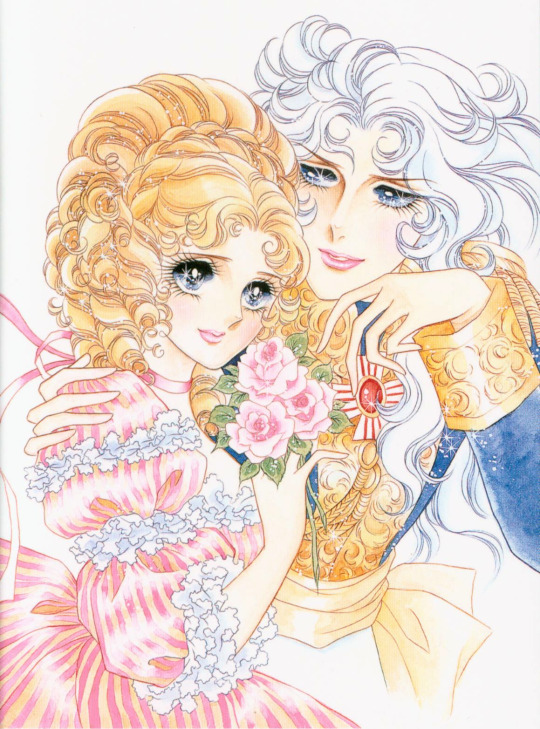
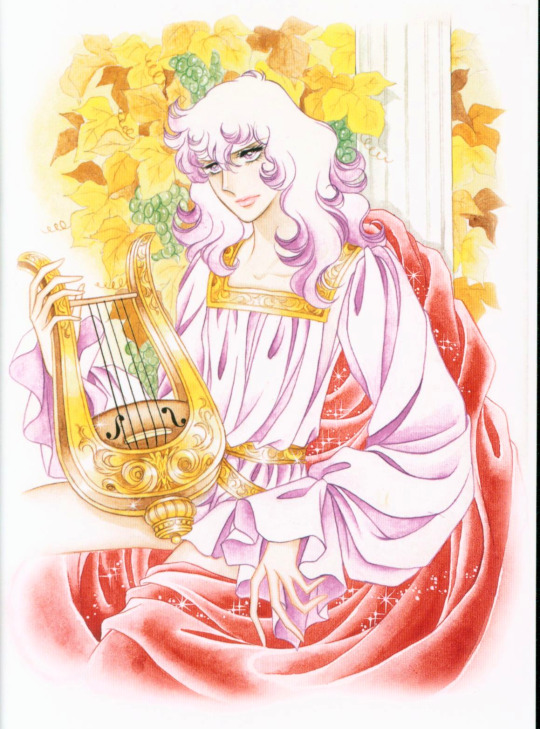
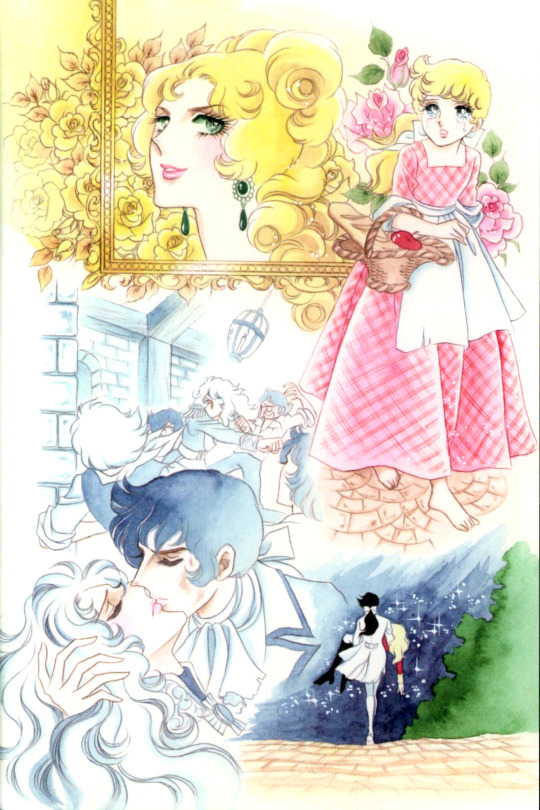
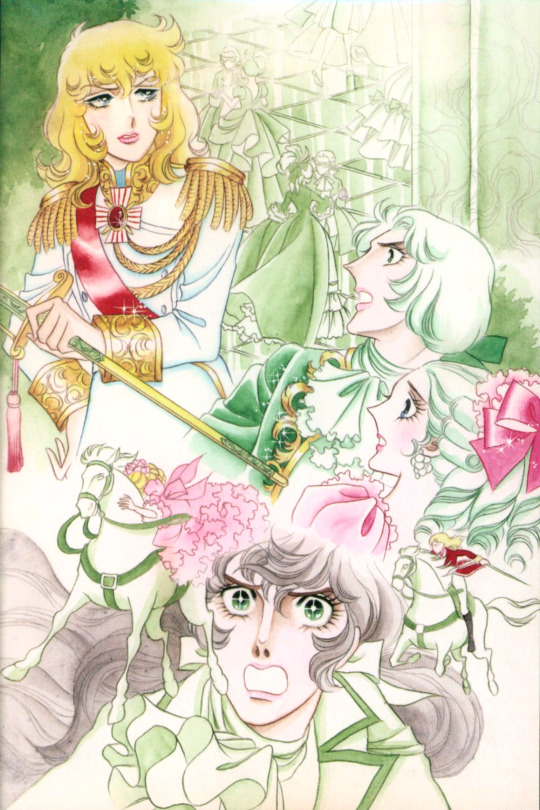
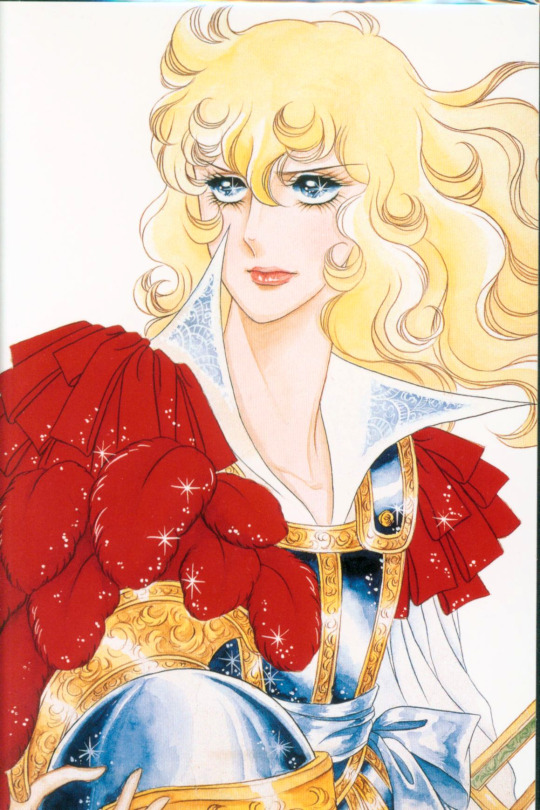
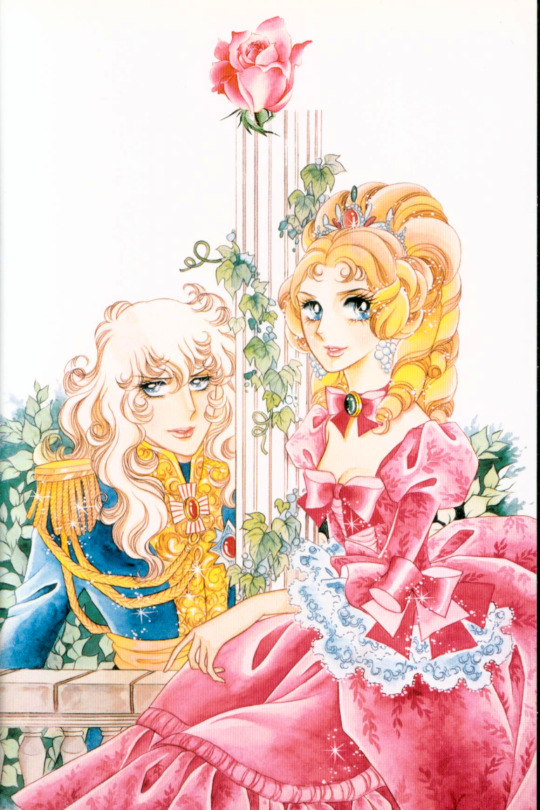
rose of versailles (1972) illustrated by riyoko ikeda
#some postcards from mandarake! edited slightly by me lol#ikeda's art is such an explosion of my favorite color palettes it always makes me go ooooghhhhhhhhhh#rose of versailles#lady oscar#berubara#versailles no bara#shoujo manga#vintage shoujo#riyoko ikeda#mine
680 notes
·
View notes
Text

720 notes
·
View notes
Text

230 notes
·
View notes
Text
Transmasculinity and queer sexuality in the works of Ikeda Riyoko
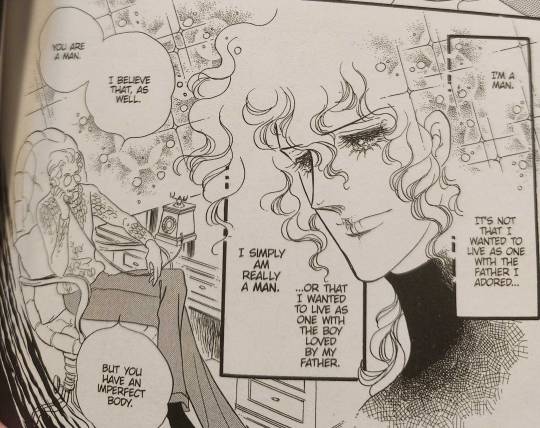
Content Warning: Discussion of transphobia and suicide
Spoilers for Dear Brother, The Rose of Versailles, and Claudine
Ikeda Riyoko—perhaps the most famous member of the “year 24 group” that played a large part in creating the foundations of the shoujo manga genre—is often credited with laying the groundwork for depictions of queer characters in shoujo, and in particular with creating the archetype of the gender-bending heartthrob heroine, or “girl prince.” Building on earlier representations of butch or transmasculine characters in early shoujo manga such as Princess Knight, and the Takarazuka theater tradition of the otokoyaku male role actor, Ikeda’s enormously popular gender non-conforming heroes—Lady Oscar from The Rose of Versailles, Rei from Dear Brother, Julius from the Window of Orpheus, and the titular character of Claudine—helped to establish that there was a major mainstream audience excited to cheer for a hotheaded, androgynous tomboy with a heart of gold. Lady Oscar in particular has fingerprints all over the history of anime and manga, from a gender-bending cameo in Pokémon to serving as the inspiration for iconic characters like Tenjou Utena.
When I first read The Rose of Versailles last year, I expected its depictions of queer and transmasculine characters to be somewhat limited—after all, the comic was written for mainstream audiences and a mainstream publisher in the 1970s. But across Ikeda’s work, I was deeply surprised with the level of care and nuance with which Ikeda approaches transmasculine love stories. While there is obviously a lot about Ikeda’s portrayal of transmasculine characters that feels dated to modern audiences (for example, her comics often do fall back on “biological” ideas of women’s weakness and emotionality, and sometimes psychologize her character’s genders in uncomfortable ways), I was surprised by how much of these comics still hit for me today. What makes them work for me is both the extreme pathos with which Ikeda writes transmasculine character’s experiences of rejection—and, at rare moments, gender euphoria —but also the fact that her trans characters are not simply given a one-size fits all born-in-the-wrong-body narrative. Instead, they are each portrayed as unique individuals with varied personal relationships to their gender, their sexuality, and the historical context of the society they live in.
Read it at Anime Feminist!
#riyoko ikeda#ryoko ikeda#rose of versailles#berubara#versailles no bara#lady oscar#dear brother#oniisama e#claudine#classic shoujo#shoujo#articles#asuka rei
625 notes
·
View notes